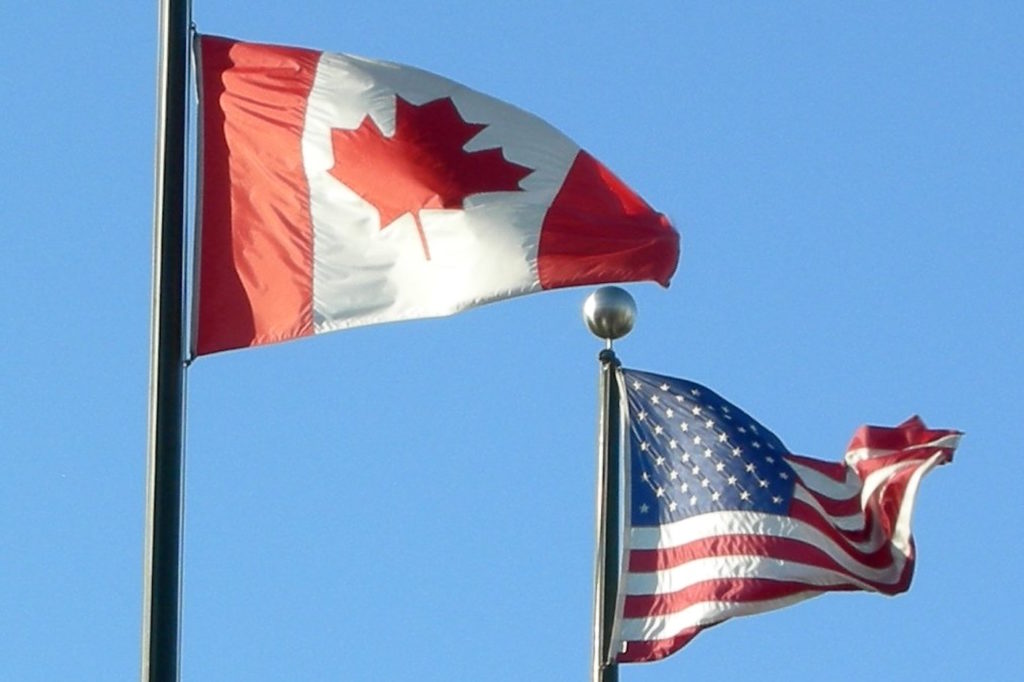In his book Right Here, Right Now, Stephen Harper (who was Conservative Prime Minister of Canada from 2006 to 2015) offers advice to conservative politicians in Canada and elsewhere. He emphasizes that if conservatives want to be successful in the era of Trump and Brexit, they must take the electorate seriously. Yet this is not simply a book about successful politicking; it is also an insightful discussion of deep divisions that are emerging in society at large. Harper warns against the dangers of elitist political abstractions.
Given his nine years as prime minister, and his experience dealing with world leaders, it is interesting that Harper has written a book that is fundamentally critical of international, globalist elites. As prime minister, Harper advocated fiscal conservatism. He and his party cut taxes and brought down the national deficit. At the same time, they pursued policies that promoted the national interest. Nationalism and conservatism were not, to his mind, opposed. He is no socialist; he defends his government’s policies because they are necessary in today’s changing and dynamic economic and political landscape.
Harper argues for a politics of populism, yet he does not defend populist ideology. Rather, he uses the recent elections to examine the kinds of policies that the people seem to want in areas such as immigration, trade, markets, globalization, and protecting local economies.
Signs of Change: Moving Away from Free Market Economics
Start your day with Public Discourse
Sign up and get our daily essays sent straight to your inbox.Harper observes that devotion to “free market economics,” that staple of right-wing ideology, needs to be reexamined. It is simply not selling in the heartland. Although it may be hard for some to hear, the truth is that certain free market policies have not served the people well. For years, conservatives have embraced the globalist perspective, with its old-fashioned liberalism of “free societies, free markets, free trade, and free movement.” This has blinded them to facts on the ground.
Moreover, the ideology of the free market is no longer exclusively conservative or libertarian. Center-left leaders like Tony Blair and Bill Clinton saw the benefit of embracing free market rhetoric, too. This created an elite political class, made up of people from both left and right, that has bought into rhetoric that has alienated them from members of the working and middle classes.
The success of Donald Trump lay in the fact that he was willing to speak to and for dissatisfied voters who did not see the benefit of that rhetoric. Trump’s victory made apparent, in Harper’s words, the “widening chasm between the perspectives of establishment institutions of all kinds—corporations, banks, bureaucracies, academia, media, and entertainment—and those who do not identify with such institutions.” Harper does not conclude that all free market policies are bad, of course—he simply suggests that elitist politics are not democratic.
In economics and elsewhere, Harper argues that political parties must adapt. He poses this question: Would Ronald Reagan, who was originally in favor of NAFTA, be so today? Perhaps not. The problem is that capitalism is an extraordinarily “complex, dynamic, and aggressive” system, and much that is written about it sounds romantic rather than realistic. Harper was and still remains a strong defender of NAFTA. NAFTA made North America the largest free trade zone in the world. But he cannot help observing that Trump won because “an ‘important minority’ [of U.S. workers] has experienced job and income losses . . . about fifteen thousand net jobs each year.” North America’s experience of opening up trade with China has been equally problematic, Harper notes. Has trade with China brought North America great wealth? Or has it vastly benefited China at the expense of North America?
Post-Reagan American conservatism has not been willing to address those questions. Instead, it has become fixated on a finite set of doctrinaire policies.
Conservatism and Class Conflict
Populism has been getting a lot of bad press among elites and is often dismissed as a harbinger of ideological extremism. But Harper argues it is a healthy reaction against the abstractions of a political class that has adopted abstract internationalist, globalist policies. He suggests that it is the task of the conservative politician to recognize that the political landscape is shifting, and to identify things that might help the middle class. This is not, of course, news; one might say that that should be the task of any democratic politician. But Harper notes that today there is a divide between elites and ordinary voters of a kind that did not exist fifty years ago.
Harper rightly observes that there is a real conflict between (dare one say it?) classes, and that this conflict has helped give rise to contemporary populism. Democratic politics are supposed to be about solving problems faced by the ordinary person. According to Harper, successful democratic politics place “the wider interests of the common people ahead of the special interests of the privileged few,” offering a “framework for identifying political priorities and making political decisions.” That a member of the elite like Trump should be the man who has done this in the contemporary political world is a great irony. Nonetheless, the popularity of his message shows that the political class, as a whole, appears not to have understood what the people have been saying. Conservatives, in particular, need not always support the policies of the globalist elites who make up international organizations such as the World Economic Forum and the European Union.
It is to Harper’s credit that he seems to recognize that, in a democracy, the task of government is to tailor its policies to the needs of society. If politicians believe that the opposite is true—if the government thinks its task is to reshape society according to some ideology—despotism results.
“Anywheres” vs. “Somewheres”
A serious social divide now exists within democratic nations. Harper aptly describes the two sides of this divide, calling elites “Anywheres” and ordinary people “Somewheres.”
“Anywheres” travel and study internationally, share political and economic ideas with each other, and have approximately the same education and experience, no matter where they were born or raised. They see their jobs as part of a system, and quite naturally become attached to that system and to their fellow elites. By contrast, “Somewheres” are rooted in a particular place. For them, love of nation comes quite naturally. They live and work locally, and their primary attachment is to family and friends. Because the local economy matters to them, they are vulnerable to globalist policy choices.
Conservative “Anywheres” must recognize the needs of the “Somewheres,” and it’s not clear that they have. Yet the interests of the “Anywheres” depend on the well-being of the “Somewheres,” because the global community relies on national governments for stability. Nations enforce contracts between businesses; they provide information and prevent fraud; they supply stable, exchangeable currencies and secure the global economy. What goes on at the national level is of great importance for global economic stability. All this is too frequently forgotten when people speak about the “new global community,” which is nothing but an abstraction and illusion created by ease of communication. This communication, as useful as it is, is not a power that keeps peace and order among nations. Only national powers can keep the peace on which the global community depends.
Theoretical Divisions among Conservatives
Stephen Harper is an economist, not a political theorist. He makes no reference to political philosophy, and he cites no learned authorities to support what he says. He writes from his own experience and knowledge of people.
Yet his book brings to light a theoretical division between two types of conservatives: those who argue that the experience of the ordinary voter is a guide to political wisdom, and those who argue that there is a particular set of doctrines that defines conservatism. In the first category, one might place the Burkean conservative, who values tradition and the maintenance of local attachment to neighborhoods, those “little platoons” of which Burke wrote. Burke held that without rootedness in a community one cannot understand the nation at large. In the other category are those conservatives who want to argue that the free market is an end in itself, even if it creates economic and social disruption within localities. If Harper is right, conflicting theories within the Republican Party must be addressed if it is to represent the people coherently and successfully.
Harper’s own suspicion about the intellectual fashions that sweep through political discourse is a sign that he might be a Burkean conservative. He clearly respects the need for the contextual in politics and emphasizes the need for practical judgement and experience. He is a man of conservative temperament.
In the cosmopolitan and internationalist world created since the Second World War, there is a continuing need to defend the local against the global. It does not hurt for America to consider the ways in which conservatives elsewhere have dealt with issues of sovereignty—always a pressing issue in Canada because of that long border with the United States. Harper’s argument is that conservative politicians should be concerned with protecting their own citizens, and that it is time for conservative politicians to distinguish themselves from those on the right and the left who have taken up globalism. Republicans have to recognize, as Trump oddly enough did, that the essential goal of conservative policy is to help the “Somewheres,” who are facing the challenges created by a global and internationalist economy.













